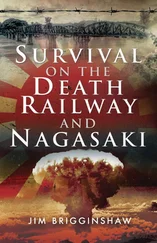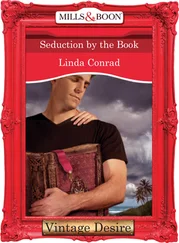“We gon’ hunker on down in the homestead. Hope for the best, and pray for a quick resolution.”
“Are you armed, Winston?”
“I got that ol’ pea-shooter Ruger twenny-two and a few boxes a ammo. Fraid I’m not launchin’ much in the way of an offensive.”
Winston laughed, but Med was dead serious as he hopped off the Jeep’s hood, handed the machine gun to a teenage boy propped up in the Jeep’s bed, who Winston recognized but couldn’t name, and retrieved something from under the Jeep’s driver seat.
“Here,” Med said, and handed Winston a worn Smith & Wesson .357 magnum, “there’s only six rounds, but it’ll blow a head clean off.”
Winston took the heavy, powerful, gun in his hands. He placed it behind the passenger seat, hidden out of view, not planning to use it.
“Thank you, Med. I’ll return it when we’re in the clear.”
Med uttered a bittersweet snicker, reflected a moment, and hopped into the Jeep. “You take care of May.” Med sped off toward the onslaught of evacuees currently invading their town.
Winston drove into Calef’s parking lot, where a solitary pickup truck was parked near the front door. He recognized it as Julie Calef’s truck. She was the only child of George and Virginia Calef, whose Johnsonville, Georgia lineage went back to the Civil War when a great-grandfather of George’s came down from New Hampshire as part of the Union Army. Lonnie Calef never returned to the north permanently, having found his place amid the destruction that his Union Army had created during Sherman’s March to the Sea. Sherman’s “scorched earth” policy left little infrastructure behind in Johnsonville, Georgia, in its path of all-encompassing and widespread destruction. When the Union Army’s Fourteenth Corps disbanded on August 1, 1865, Lonnie returned to his Barrington, New Hampshire dairy farm just long enough to sell it, returned to Georgia, and pledged the proceeds of the farm’s sale to the good citizens and ex-slaves of Johnsonville. Lonnie was just twenty-three years old. It was a tough life, living amid the southerners as a Yankee, but he had made a connection to the people of the growing town on the lake and he was compelled to help its inhabitants rebuild both its infrastructure and character. He employed some of the very men he fought during the war, and hired just as many former slaves who had nowhere to go now as freed men and women. Winston knew the story of Lonnie Calef well — and thought briefly that the Calef lineage might be in danger of ending in the next few days as he slammed the truck door and walked to the front door. A single light shone inside.
Winston found himself staring at a faded black and white photo that hung in the window of the store. It was of a sixty-odd-year-old white man standing with a twenty-something-year-old black man in the very spot that Winston now stood — on the front porch of Calef’s. The men wore matching painter’s overalls, wet paint brushes in hand, and they were spattered from head to toe in white paint. Their wide-mouthed grins conveyed camaraderie borne by decades of unconventional and unconditional friendship. The photo was dated 1905, and the caption read: “ Mayor Lonnie Calef with Josiah Wellbeloved, painting the store – again .” Winston, standing cross-armed, smiled genuinely. Suddenly, a single gunshot rang out loudly, startling him back into the present day. He turned to look toward the highway, but he couldn’t see the source of the gunfire. Med and his Johnsonville militia still waved the traffic back onto the highway, northward, toward Morrow and their empty gas stations and grocery stores.
The brass bell rang out of tune as Winston opened the creaky door. His stomach turned to knots as he scrutinized the store — there wasn’t a scrap of food left on the shelves. As he made his way to the registers, a voice called out his name. He turned to see Julie Calef scurrying down aisle three, toting a large cardboard box his way. Winston rushed to her and relieved her of the hefty box.
“Thanks, Mr. Sparrow. How are you?” she asked.
Winston placed the box onto a checkout counter.
“Jes’ fine, Julie. And yourself?”
Julie was nineteen or twenty — Winston couldn’t remember — with bright raspberry pink-colored hair and a deeply solemn face. She slipped behind the counter and found the magazine she was reading before Winston came in.
“I saw it was you standing outside. This is for you,” she said and she motioned toward the box, “from Daddy.”
“Let me guess,” Winston said, as he and Julie said in unison, “Franco-American.”
They laughed. Winston opened the box and rummaged through its contents: twenty-four cans of Franco-American, a dozen cans of chunk light tuna, three boxes of Pop-Tarts (two frosted brown sugar cinnamon and one frosted strawberry), seven cans of creamed corn, five cans of peaches, and one box of Count Chocula cereal.
“I’m sure glad you came in,” Julie said, “I was afraid your box was gonna get stolen.”
“I was ‘fraid you wouldn’t be open.”
“Daddy wanted to make sure you got that box and he wants me to stay as long as I can. But ain’t nobody comin’ in anymore. We’re out of just about anything you can eat.”
“Where is yo’ daddy?”
“Boarding up the windows. I don’t know why we don’t just up and go over to Lafayette.”
“Yo’ daddy’s a proud man, Julie. This is his town. He’s not gonna ‘bandon the good folks a Johnsonville.”
“I still think we’d be safer in Lafayette.”
“Maybe, but you ain’t the mayor of Johnsonville. He is.”
She shrugged.
“Julie, there’s no more food or water?” Winston asked.
“Fraid not. Daddy pretty much divvied up what we had left. I’m waiting on a few of the families to come in and get the boxes we made up for them.”
“Fine. I need some items from the lumberyard. You mind?”
“Take what you need. Daddy says everyone’ll square up when it’s… well, when everything’s done. And back to normal.”
“It’s mighty virtuous of yo’ daddy, Julie. He a good man.”
Julie shrugged and turned her attention back to the magazine as Winston grabbed a shopping carriage and walked through the store toward the lumberyard. He made a beeline through the home goods aisle. There was still plenty left on the shelves — just nothing that could be consumed. He grabbed a dozen boxes of quart-sized Ziploc bags and twenty Tupperware bowls with lids, and tossed them into the carriage. He walked through the camping section to find it in complete disarray. It seemed that others had the same idea — that war was akin to camping and produced similar problems. He searched through the detritus of unusable camping gear and was joyful when he came up with a water filter — the gravity type that could filter four liters of water in a few hours. This piece of equipment might be vital if they were forced to drink the water out of Robin Lake. He also found several bottles of chlorine dioxide drops that would also treat un-potable water should they need to. In the lumberyard, there was no wood to be had; presumably every piece of dimensional lumber and plywood was scooped up to board houses. It didn’t matter to Winston — he was there for plumbing supplies, which were still available in abundance. He rooted through the plumbing materials, carefully assembling the items he needed — a ten-foot length of three-inch PVC piping, PVC glue, a forty-five-degree flanged fitting, a roll of pipe strapping, fittings, and a Y-fitting. It all went into the carriage — he had the remaining needed items at home. He pushed the carriage outside to the bags of crushed stone. He didn’t need anything fancy, just enough stones to fill in the hole he planned to dig tomorrow. He jotted down what he had taken on a scrap of notebook paper he found on the concrete floor, left the carriage near the crushed stones, and found his way back to Julie. She was still staring at the same page in the magazine she had been when Winston had left her. He laid the list on the counter.
Читать дальше
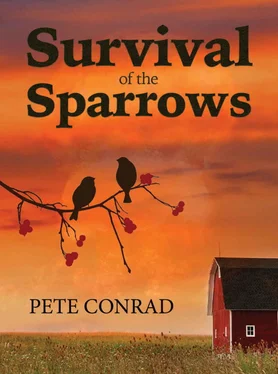
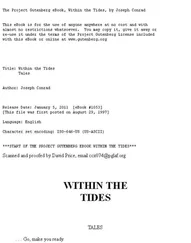

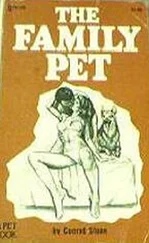

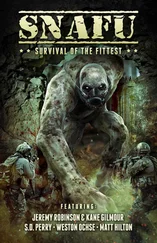
![John Stieber - Against the Odds - Survival on the Russian Front 1944-1945 [2nd Edition]](/books/405234/john-stieber-against-the-odds-survival-on-the-russian-front-1944-1945-2nd-edition-thumb.webp)
